Explore the Best AI Image Gallery
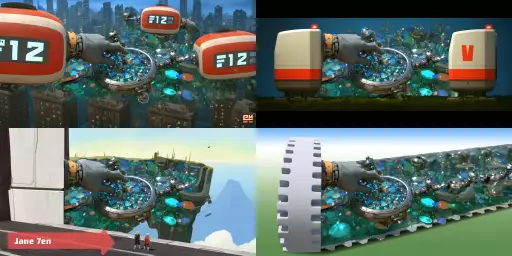
AI-Generated Media: A Creative Revolution With Ethical Crossroads
The realm of creativity is undergoing a profound transformation with the advent of artificial intelligence (AI). AI-generated media, encompassing text, images, audio, video, and even code, is rapidly changing how we create, consume, and interact with content. This revolution presents both exciting opportunities and complex ethical challenges that demand careful consideration.
The Creative Canvas: Unleashing New Possibilities
AI-powered tools are empowering creators with unprecedented capabilities. Imagine generating realistic images from a simple text prompt, composing original music in seconds, or crafting compelling narratives tailored to specific audiences. This technology can democratize creativity, making it accessible to individuals without specialized training or resources.
Applications Across Industries
- Art and Design: AI can assist artists in generating unique visuals, exploring new aesthetics, and streamlining design processes.
- Advertising and Marketing: Personalized content creation, targeted advertising campaigns, and dynamic ad experiences powered by AI can enhance engagement and ROI.
- Entertainment: From scriptwriting and character development to visual effects and sound design, AI can contribute to every aspect of film, television, and video game production.
- Education: AI-powered tutors, interactive learning experiences, and personalized educational content can revolutionize the way we learn.
Navigating the Ethical Landscape
While AI offers immense potential, its application in media creation raises several ethical concerns:
Copyright and Ownership
When AI generates content, who owns the copyright? Is it the creator who provides the prompts, the developer of the AI algorithm, or the AI itself? Establishing clear legal frameworks is crucial to address these ownership questions.
Bias and Fairness
AI algorithms are trained on vast datasets, which can reflect existing societal biases. This can result in AI-generated media perpetuating harmful stereotypes and discrimination. Its essential to ensure fairness and mitigate bias in AI training data and algorithms.
Misinformation and Deepfakes
AI-generated content can be incredibly realistic, making it susceptible to misuse for creating convincing fake news, propaganda, and deepfakes. Identifying and combating such malicious applications is a pressing concern.
Transparency and Accountability
The decision-making processes of AI algorithms can be opaque. Its important to develop transparent and accountable systems that allow users to understand how AI-generated content is created and identify potential biases or errors.
Shaping the Future of Creative Expression
As AI continues to evolve, it will undoubtedly reshape the creative landscape further. Embracing this technology responsibly requires ongoing dialogue, collaboration, and a commitment to ethical principles.
- Education and Awareness: Raising awareness about AIs capabilities and limitations is crucial for both creators and consumers.
- Industry Collaboration: Fostering collaboration between artists, technologists, ethicists, and policymakers can help develop best practices and guidelines for AI-generated media.
- Regulation and Policy: Governments and regulatory bodies need to establish clear frameworks that address copyright, bias, misinformation, and other ethical concerns related to AI.
AI-generated media presents both unprecedented opportunities and complex challenges. By navigating this landscape responsibly, we can harness the power of AI to enhance creativity, foster innovation, and shape a future where technology empowers human expression.
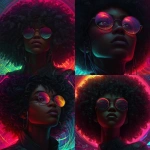
](https://images.ai-img.art/thumbnails/150/f9928aee79da6b2028ac7a7129ac30e6475a85d5300661776fde267c2da839ab.webp)

](https://images.ai-img.art/thumbnails/150/f1cbba604c7411267acd95acaa4746a5ee006a25ade5e596a9501884b384e1dd.webp)

](https://images.ai-img.art/thumbnails/150/03de477e462377e62b34fea23ab1cbf6d4557f4077cc8bed9f23388af1200721.webp)

](https://images.ai-img.art/thumbnails/150/9ad2f4d771346182f4c9b6d1712edfd0b6b776f37b75dac606a8e03b1bd2dc47.webp)

](https://images.ai-img.art/thumbnails/150/8884a7a8953b23d6c882f33524c10e09d320bbce4f305f2c7e79c402d82c1760.webp)



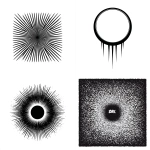
](https://images.ai-img.art/thumbnails/150/4d725f4d5380eb583bdebf0aad4c789acd6782398b4050f01f350a939dd4c2af.webp)


](https://images.ai-img.art/thumbnails/150/45d068cbdc39002eccc21e2169438a3c142426219fda8c9e027c536cdf66811e.webp)




](https://images.ai-img.art/thumbnails/150/5b3fca49762c8c532ff70f250ca3b5900bac75be98d6c82f8f7a220465ad534a.webp)

](https://images.ai-img.art/thumbnails/150/cc8f7b8338e849e1e11a902ac51eda96c8f710e5d829c5b4d57b56fa05d28e95.webp)


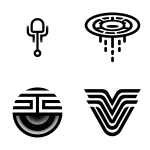
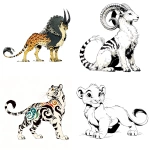





](https://images.ai-img.art/thumbnails/150/89d86a1c20e8844b6d4ce23cf0e6ae10c19923617b6be16cac5d3cc513bf9c4e.webp)
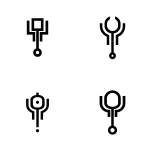



](https://images.ai-img.art/thumbnails/150/c04f7210bb9d35279503ff64ad44a9826d6909838f777fb1edd0fdece2ac7c70.webp)

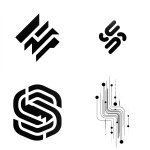
](https://images.ai-img.art/thumbnails/150/16ec42833d204af37c75cc776a794c54661cbfe1061c899680a4976a7f74cd51.webp)

](https://images.ai-img.art/thumbnails/150/78a1311461ccc4b60dd1430d56ee04b3b5612a3145aef0a32196168d5489fdf3.webp)
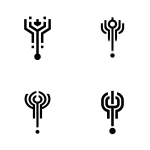
](https://images.ai-img.art/thumbnails/150/bbf691f1c69e4801062c68d0435463c5bf76258e3984fbe3cc25e9e46174cf88.webp)

](https://images.ai-img.art/thumbnails/150/55e9c8ac48f7ca1311ec4a843e2616aa87c73e2217901ac138d198afb0b4f1db.webp)
